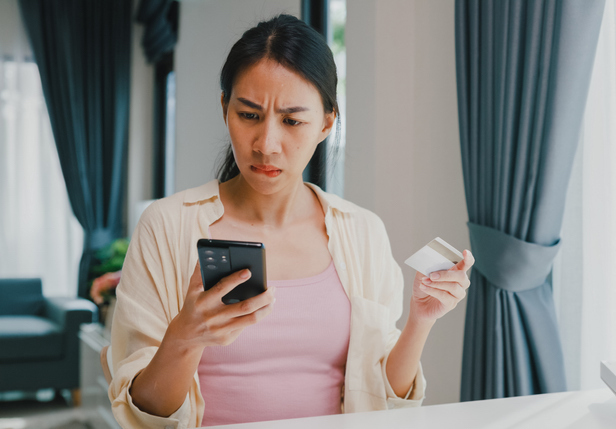7.29.23
Don’t Fall for Fraud

Learn how to protect your money and your data from scammers.
As fraud tactics evolve and people are continually conned out of their hard-earned money, Consumers Credit Union is diligently at work to educate our members and communities on how to protect their money and personal information.
From email and phishing scams to phone and text scams, these crafty fraudsters are always searching for the next way to swindle unsuspecting and vulnerable people.
While the Consumers team could contact you about member-related inquiries via phone, text or email, please know that we will NEVER request any of the following personal information:
![Screenshot of Consumers Credit Union Text: "ConsumersCU: Your verification code is [blank]. To avoid scams, please don't share your passcode! A Consumers employee will never ask for it. If you did not initiate this request, please contact us immediately."](https://www.consumerscu.org/wp-content/uploads/2023/07/ConsumersCU_FraudText_Edited-300x253.jpg)
Your MFA Code
According to the Cybersecurity & Infrastructure Security Agency (CISA), multi-factor authentication (MFA) is when a system requires a user to present a combination of two or more credentials (like both a password and special code) to verify a user’s identity for login.
If you have multi-factor or two-factor authentication set up on your device for Consumers’ Online Banking, we will never request the code prompts from you.
Your PIN
Your Personal Identification Number (PIN) is a four-digit code used to complete credit/debit purchases or to access an ATM. Also, take care to shield the keys whenever you type your PIN, whether that’s an ATM or a point-of-sale kiosk.
Your CVV Code
The Card Verification Value (CVV) is the three-digit code on the back of your debit or credit card that is sometimes used for online purchases.
Your Online Banking Credentials
The username or password you use to access your Consumers Online Banking. That is your personal account information, which you should never share with anyone.
Your Full Account, Credit or Debit Card Numbers
We know your account numbers since we assigned them to you. While we may ask you to confirm that last few digits of your account number, we will never ask you for the whole thing.
“As fraudsters become increasingly more creative, we are working harder than ever to stop them from taking advantage of our members,” said Consumers Chief Sales Officer Jeff Visser. “Whether it’s to help identify a potential fraud attempt or navigate the journey after becoming the victim of a scam—the Consumers team is always available to help.”
Learn how to protect yourself from scammers and stay up-to-date on the latest fraud trends at ConsumersCU.org/Security.
Federally insured by NCUA



Do you help people with MSHDA home loans?
Hi Bobbi, we don’t at the moment, but give us a call at 800.991.2221 and we can discuss the options we have available.
What do you think of these fraud protection agencies that advertise on TV
Hi Luther, give us a call at 800.991.2221 and we can put you into contact with someone on our fraud team to talk more if you’d like.
I just received a fraudulent email. Is there an email I can forward it to be looked into?
Hi Monique, Kari from Consumers will be reaching out to you via email. Please let us know if you need anything else.
I received a call fromFNCU ASKING IF I OK’d $172.00 to Zelle
I returned text with No
Just checking to see if this is legit
Hi Lucrecia, please give us a call at 800.991.2221 so we can find out more.
Thank you for caring.
Thanks for reading!
Thank you
When the phone gives us a code to finish the log in process can the numbers be presented a little slower? or maybe by account and that would be a lot of work.
Hi Gerald, please give us a call at 800.991.2221 and we can see if there would be a solution.